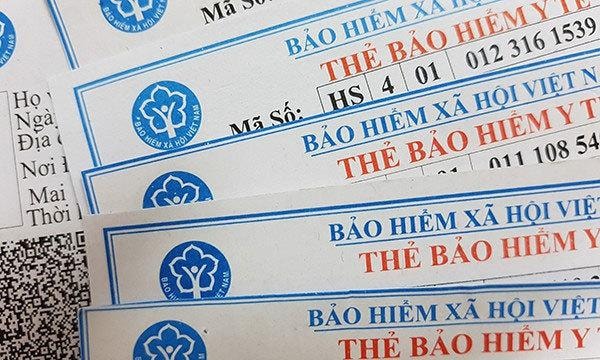If I finish inpatient treatment but still have to take medicine every month, will health insurance cover the medicine cost?
(Baonghean.vn) - Trong Hai Law Firm and Associates advises and answers citizens about health insurance payment regime.
Mr. Le Van H (55 years old) residing in Vinh City, Nghe An Province, informed that he had heart failure and last May he had to undergo surgery at the hospital. The doctor discharged him but he still had to take medication every month.
Mr. H asked: Is the medicine I have to buy every month covered by health insurance?
Reply:
Pursuant to the provisions of Clause 5, Article 27, Decree 146/2018/ND-CP on payment of medical examination and treatment costs in some cases, "In cases where a patient has been stabilised after inpatient treatment but needs to continue using medication after being discharged from the hospital as prescribed by the medical examination and treatment facility according to the regulations of the Minister of Health, the Health Insurance Fund shall pay for the cost of medication within the scope of benefits and the benefit level according to the prescribed regime. The medical examination and treatment facility shall include this medication cost in the patient's medical examination and treatment costs before being discharged from the hospital".
 |
| Illustration photo. |
Thus, according to this regulation, in the case of a patient who has been treated as an inpatient and is stable but needs to continue using medication after being discharged from the hospital as prescribed by the medical examination and treatment facility according to the regulations of the Minister of Health, the Health Insurance Fund will pay for the cost of medication within the scope of benefits and the benefit level according to the prescribed regime. In the case of Mr. H, he still has to take medication every month as prescribed by the doctor. If these medications are still within the scope of health insurance benefits, the health insurance fund will still pay for the cost of those medications.
Regarding drugs for the treatment of heart failure, according to the provisions of Section 12.5 of Appendix 01 issued with Circular 30/2018/TT-BYT, the list of drugs for the treatment of heart failure covered by health insurance is as follows: Carvedilol; Digoxin, Dobutamine, Dopamine hydrochloride, Ivabradin, Milrinon.
Each of these drugs will be prescribed for use in different hospital categories according to specific regulations in Article 2, Circular 30/2018/TT-BYT combined with a lookup in Appendix 01 issued with the Circular.
Pursuant to the provisions of Point d, Clause 1, Article 2, Circular 30/2018/TT-BYT stipulates as follows: “Columns 4, 5, 6, 7: Record the hospital class used. Drugs and active ingredients in the List of pharmaceuticals and biological products in the List in Appendix 01 are used at medical examination and treatment facilities according to hospital class, specifically as follows: Special class and class I hospitals use drugs specified in column 4; Class II hospitals use drugs specified in column 5; Class III and class IV hospitals, including general clinics of general hospitals or district, town, city medical centers use drugs specified in column 6; Medical examination and treatment facilities are commune, ward, town health stations, agency health stations and equivalent use drugs specified in column 7”.
Applying the above regulations to Section 12.5 of Appendix 01 issued with Circular 30/2018/TT-BYT, the types of heart failure drugs used at the following hospital levels: Carvedilol (oral) is used at special class, class I, II, III, IV hospitals, general clinics of general hospitals or district, town, city medical centers; Digoxin (oral) is used at special class, class I, II, III, IV hospitals, general clinics of general hospitals or district, town, city medical centers; Digoxin (injection) is used at special class, class I, II, III, IV hospitals, general clinics of general hospitals or district, town, city medical centers, commune, ward, town medical stations, agency health stations and equivalent.
Note: For general clinics and commune health stations: The health insurance fund covers emergency treatment; Dobutamine (injection) is used at special class, class I, II, III, IV hospitals, general clinics of general hospitals or district, town, city health centers; Dopamine hydrochloride (injection) is used at special class, class I, II, III, IV hospitals, general clinics of general hospitals or district, town, city health centers; Ivabradine (oral) is used at special class, class I, II, III, IV hospitals, general clinics of general hospitals or district, town, city health centers; Milrinone (oral) is used at special class, class I, II, III, IV hospitals, general clinics of general hospitals or district, town, city health centers;

